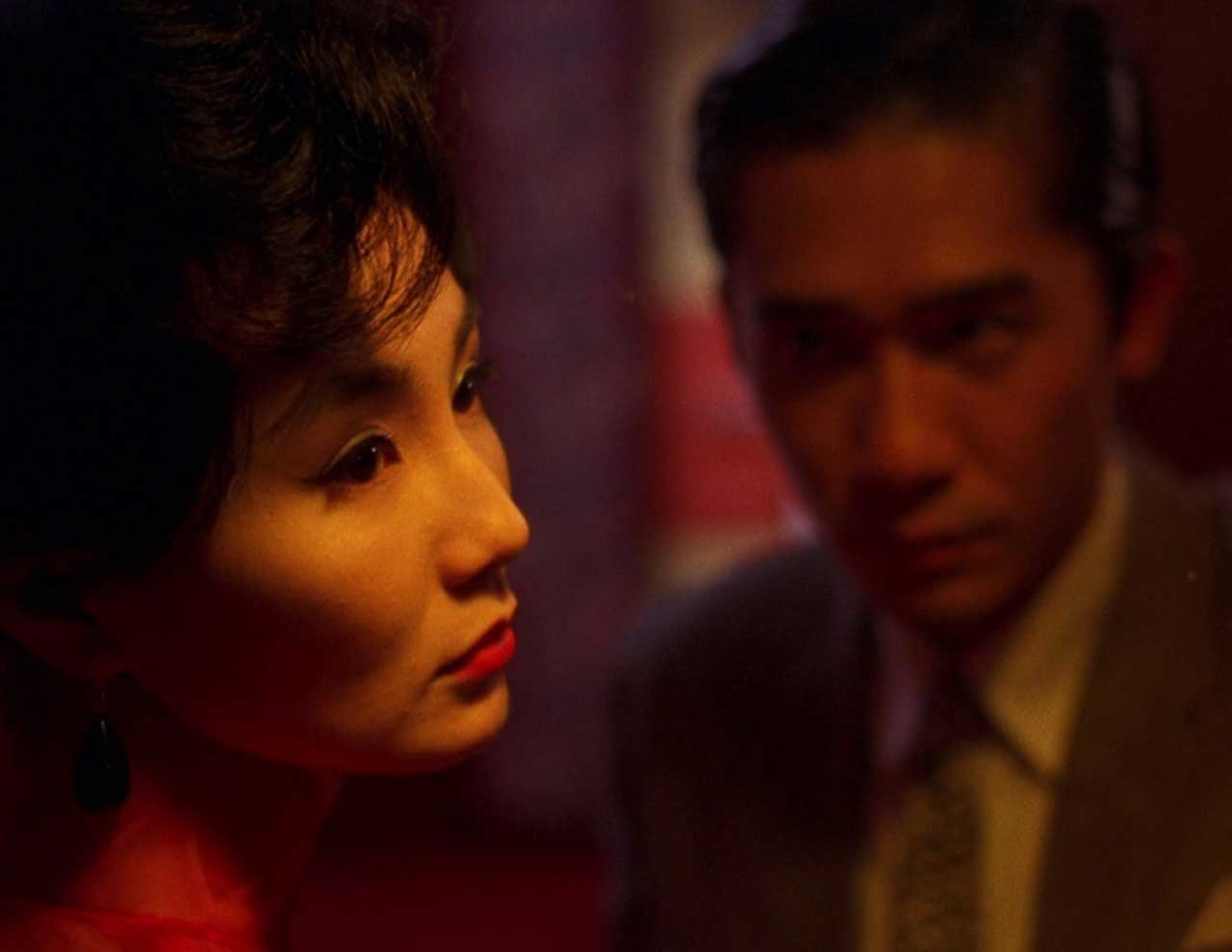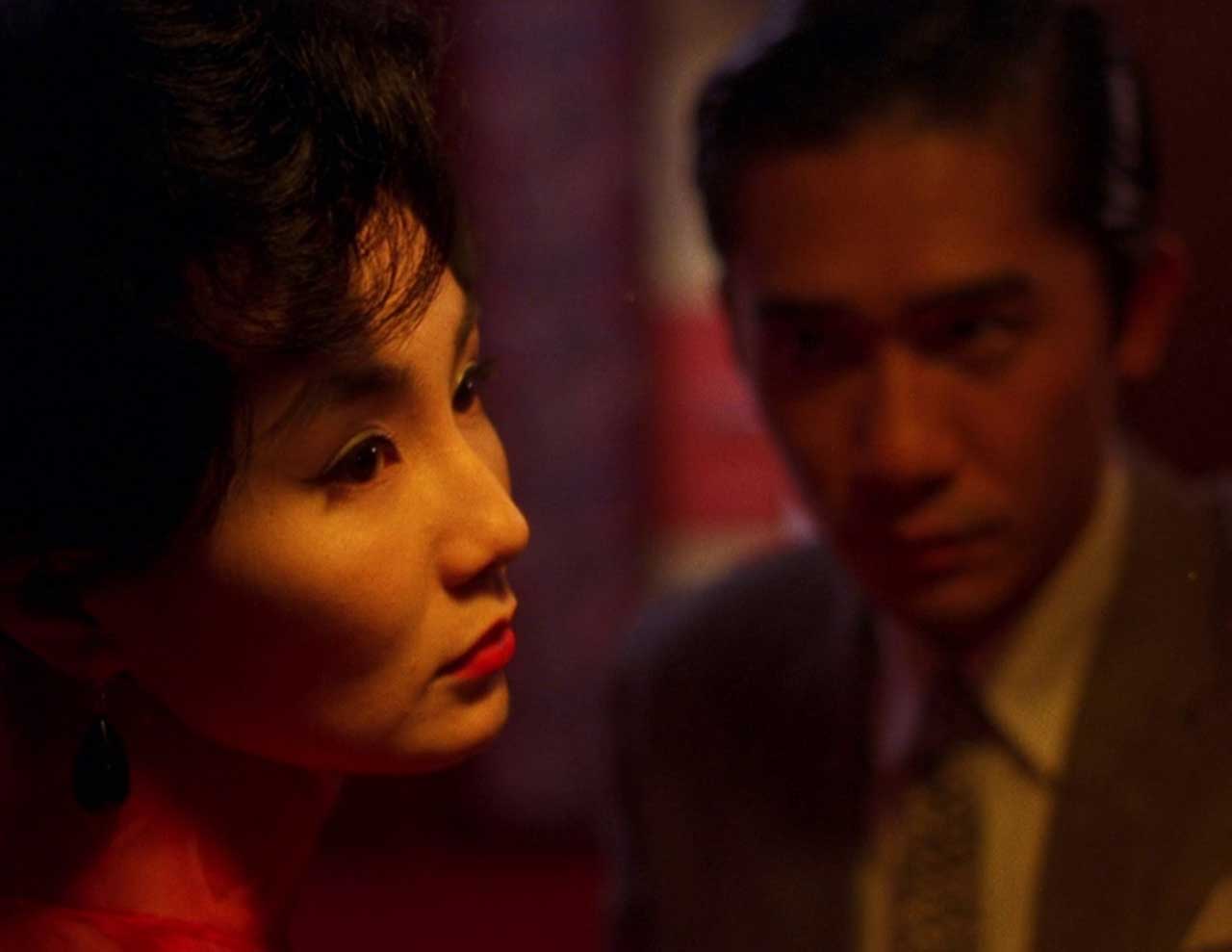
Actors Maggie Cheung and Tony Chiu-Wai Leung
IN THE MOOD FOR LOVE
Forever Ethereal
by Paola Herrera
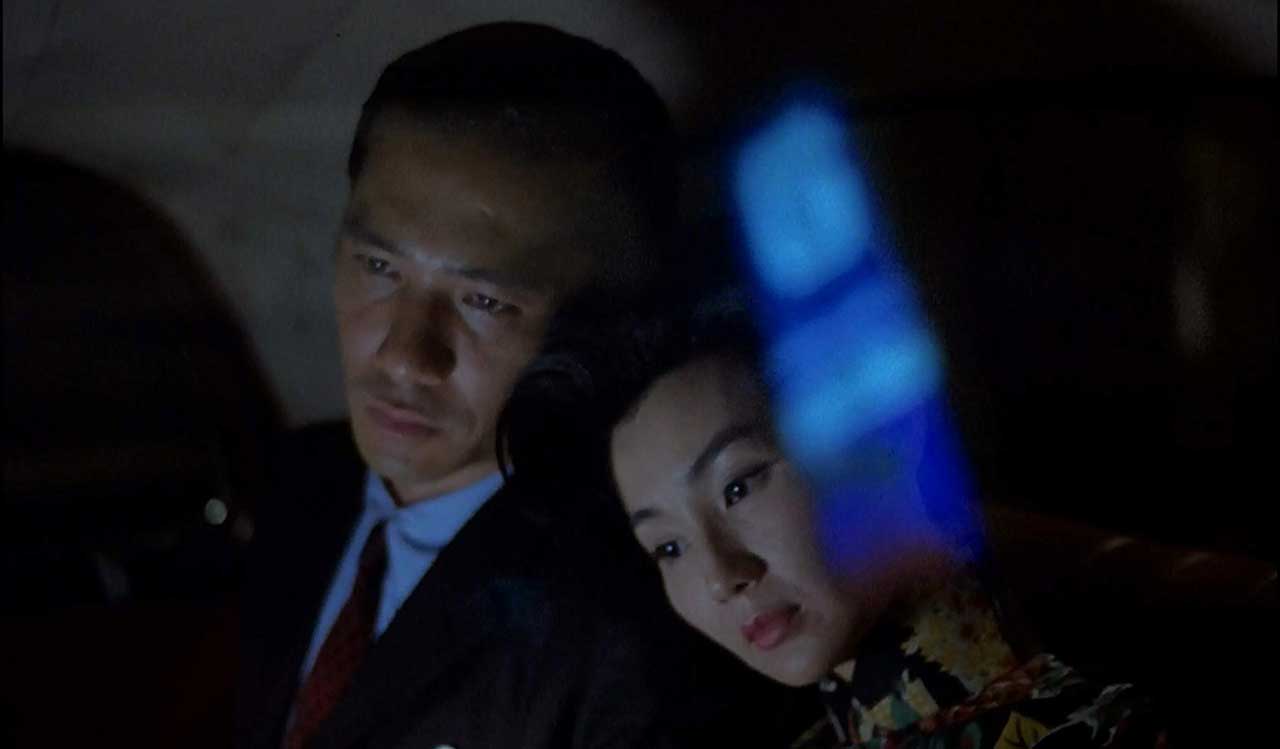
Actors Maggie Cheung and Tony Chiu-Wai Leung
In the Mood for Love by Chinese film director Wong Kar-Wai is a visual masterpiece that portrays the relationship between neighbors Su Li-zhen and Chow Mo-wan while they grieve the betrayal of their spouses. Wong Kar-Wai explores the surprise that love represents for these characters, that by imagining how the affair of their spouses began, are drawn into a very profound relationship. Their complicity unveils their sensitive nature and unexpectedly fall deeply in love.
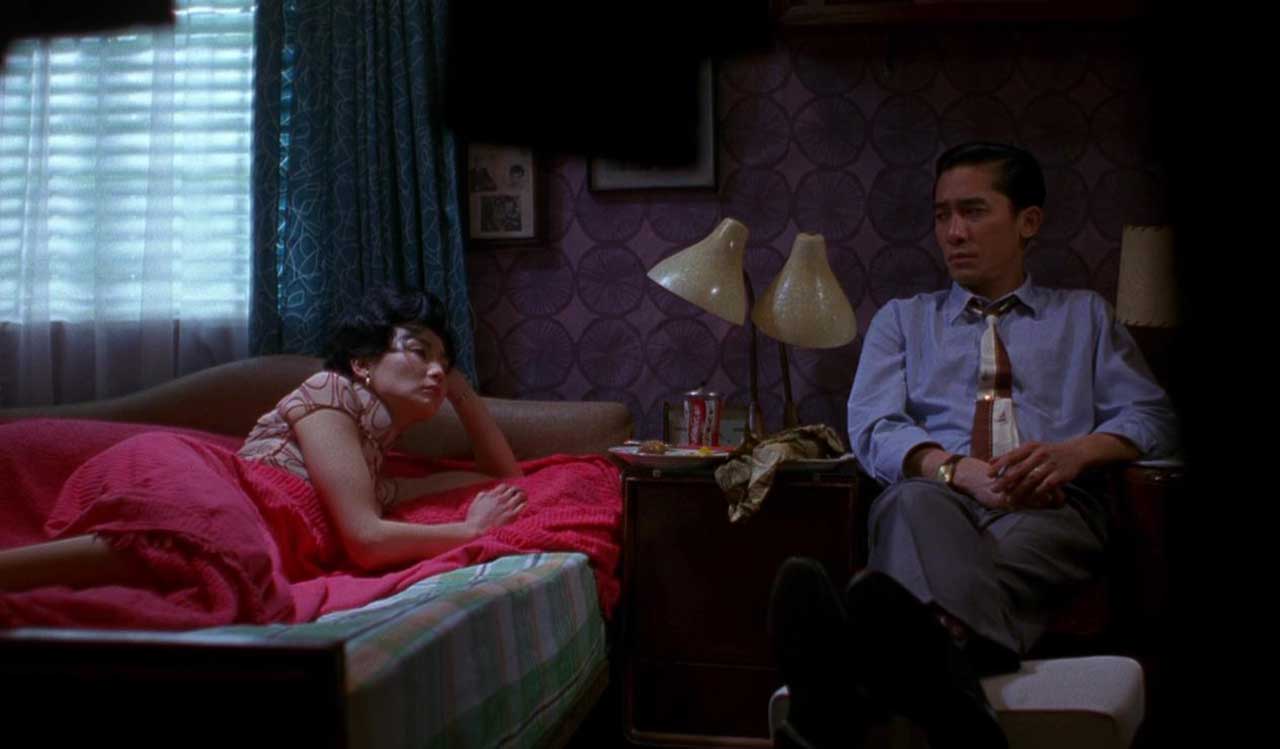
In the Mood for Love
The shift in the mood of this relationship is very subtle due to the artistry of cinematographers Christopher Doyle, Pung-Leung Kwan and Ping Bin Lee. The slow-motion sequences convey the crossroads in time when Su Li-zhen and Chow Mo-wan encounter at an emotional level. The camera invites the viewer to a very intimate journey: the narrow streets of their neighborhood, the tenement house where they live and their private rooms. The use of mirrors throughout the film gives a sense of retrospective view of the affair, as if seen from afar alluding to the vagueness of memory.
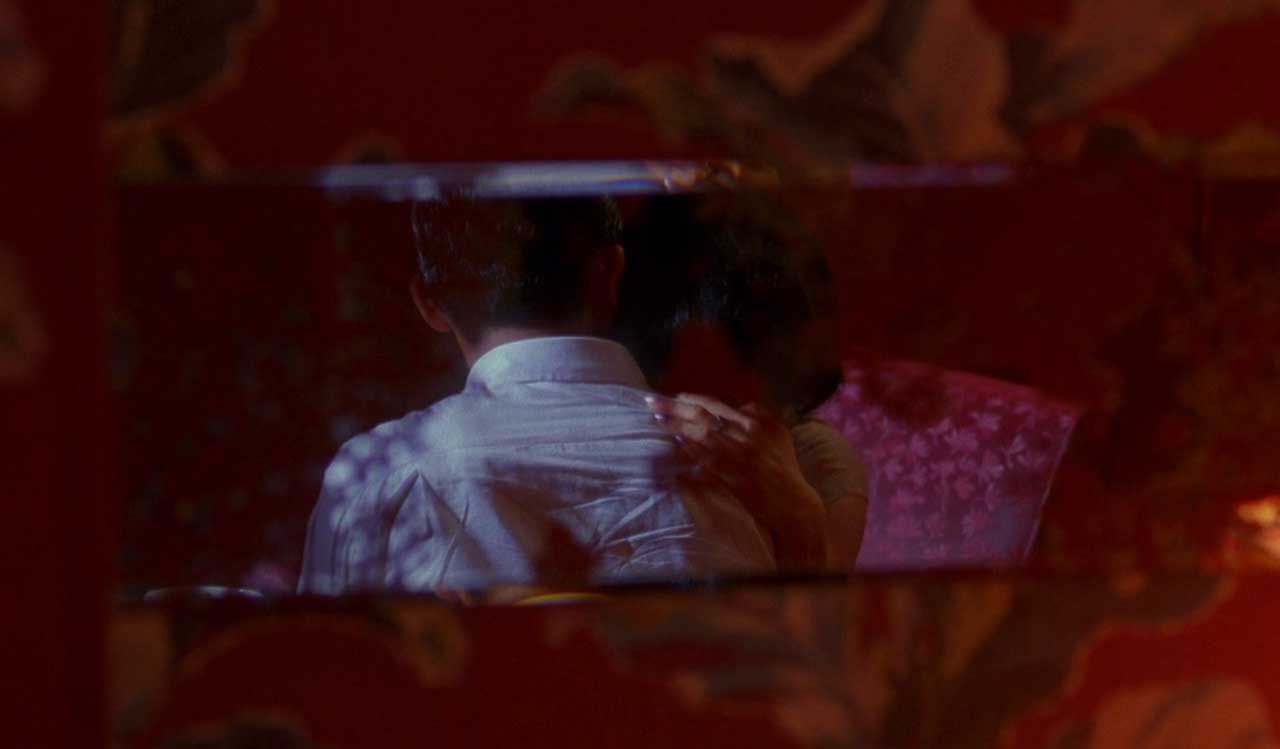
In the Mood for Love
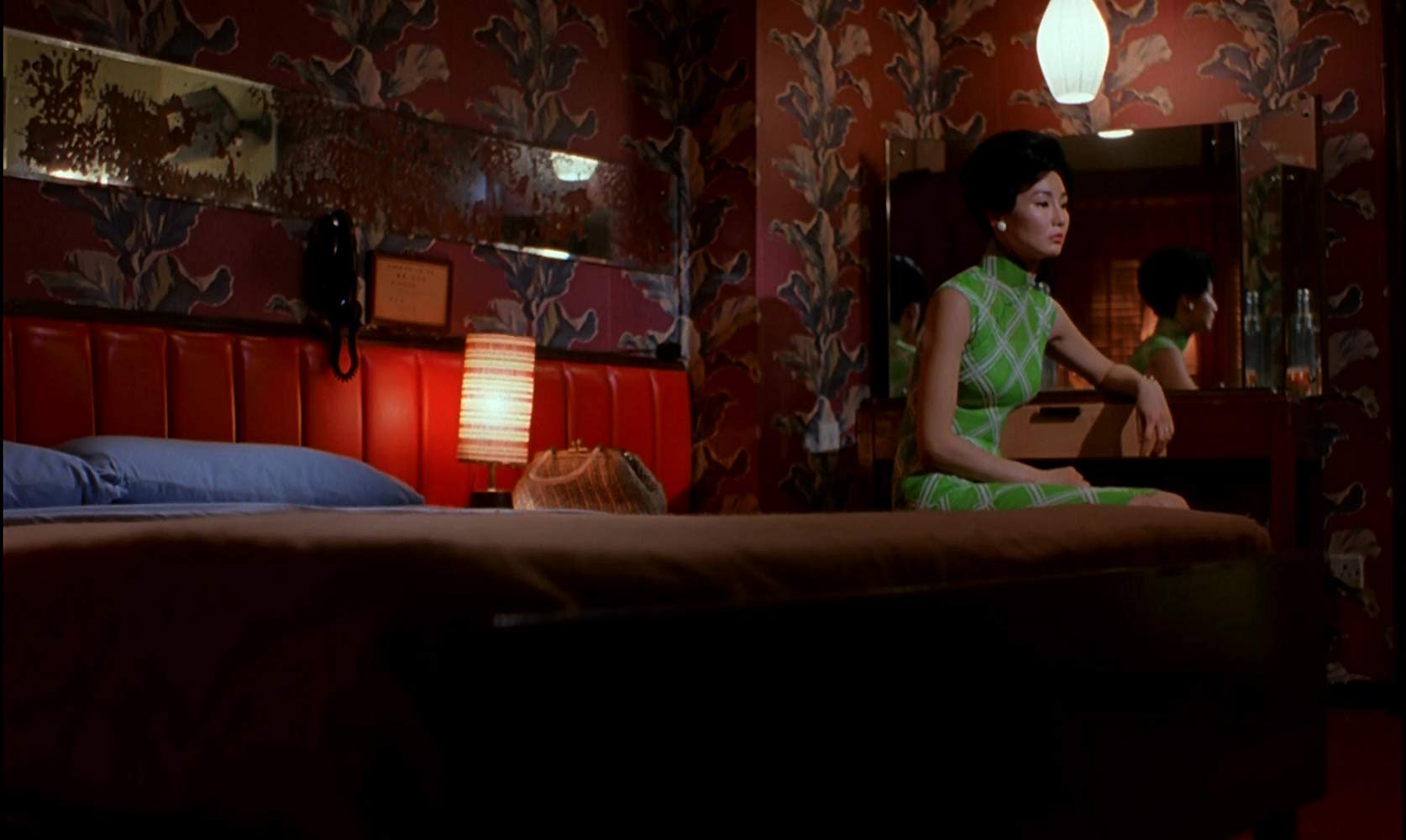
In the Mood for Love
In the Mood for Love is structured with the concept of a veduta from the Italian Renaissance painting, where the elements portrayed in a room represent the essence of the depicted character. The most important moments that Su Li-zhen and Chow Mo-wan share is in the privacy of their bedrooms and ultimately, we presume they have a tryst in room 2046. It is fascinating how their affair is never revealed, the most significant actions and dialogues are left to the imagination of the spectator.
A very interesting trait of Wong Kar-Wai’s films is how they are connected in their narrative, as if he wrote divergent chapters of the same story. This is the case of In the Mood for Love, Room 2046 and Happy Together. All of his imagery is labyrinthic, a metaphor for the secret bond that is created between people that love each other deeply but inevitably cannot be together. Wong Kar-Wai’s enigmatic cinema is very close to the works of literature written by Jorge Luis Borges, where the mystery of space and time are the key to the narrative of the stories.
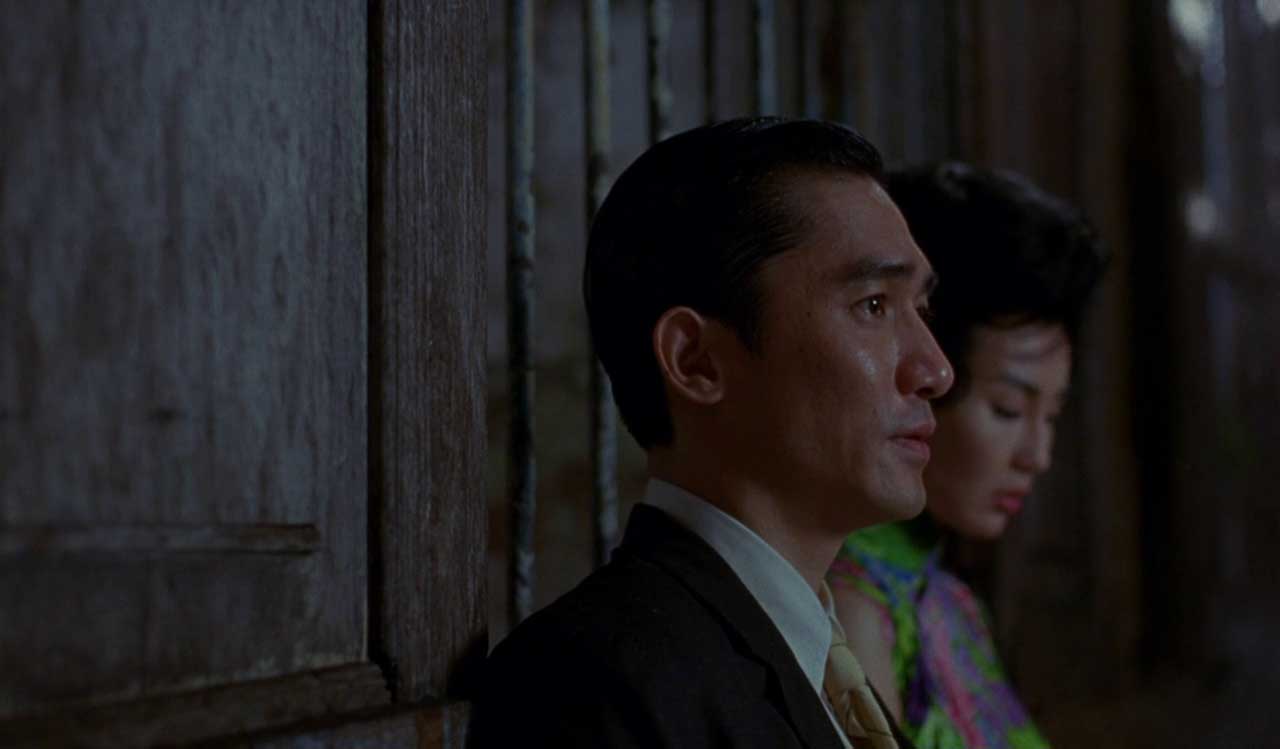
In the Mood for Love
The romantic yet heartbreaking lyrics of the bolero and tango music present in Wong Kar-Wai’s films are used as a leitmotiv to reinforce the sense of loneliness and despair that is left after a lover is no longer in our lives, only memories are left to fill the void.
“He remembers those vanished years. As though looking through a dusty window pane, the past is something he could see, but not touch. And everything he sees is blurred and indistinct.”
Wong Kar-Wai
Epilogue In the Mood for Love
